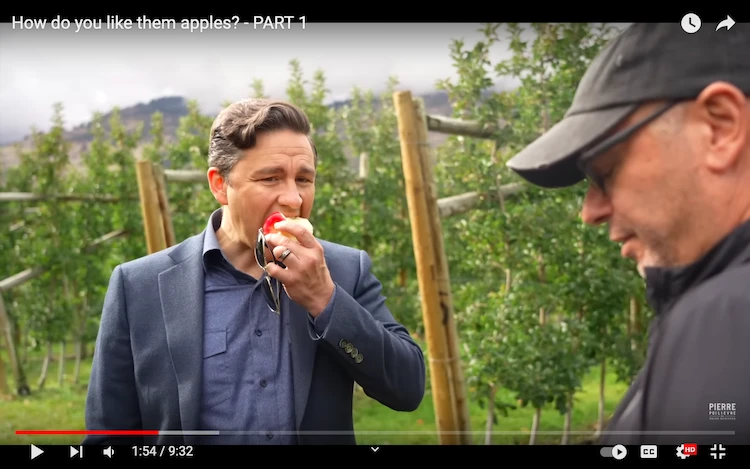How do you like them apples? – PART 1
You’ve exemplified remarkable resilience by not allowing “talking point media labels” to define you without demanding clarity or justification. Today, it’s distressingly prevalent for people to casually apply labels, often without a deep understanding of their significance or implications.
When you’re judged or labelled publicly, asserting your right to demand evidence for such claims isn’t just a display of your confidence but also a testament to your integrity. You’re leading by example, teaching others the crucial lesson of holding individuals verbally accountable. This is especially pivotal in today’s age where misleading tags and judgments can spread like wildfire.
Furthermore, your emphasis on the principle of “common sense” deserves applause. As years have gone by, many seem to have drifted away from foundational reasoning and logic. It becomes alarming when people can’t even discern the erosion in their own ability to make “sense”, reason effectively, or employ “common sense”. The need of the hour is for people to be more analytical, inquisitive, and skeptical of the information they are bombarded with.
Additionally, we’d like to shine a spotlight on a crucial distinction that often gets blurred – the one between non-professionals and professionals. The digital renaissance has made information sharing a breeze, but this boon is not without its pitfalls. The plethora of voices and opinions available is indeed liberating, but it’s paramount for individuals to differentiate between casual chatter, spirited debates among acquaintances, and the informed judgments of professionals. True professional judgments are typically anchored in robust data and principles, delivered with assured confidence, and aren’t subject to the whims and biases that can dominate informal conversations. Pierre, your discerning approach and analytical prowess easily classify you among those capable of professional judgment.
In conclusion, Pierre, your firm stance against unwarranted labelling combined with your accent on sense-making and common sense is not just commendable but also incredibly timely and incredibly relevant in upcoming ‘age of disinformation’. Here’s hoping that more people, including our friends and colleagues, take a leaf out of your book and contribute to creating a more informed and judicious society. Kudos!
@Goldencitygirl

Related books and resources:
“Thinking, Fast and Slow” by Daniel Kahneman – This book delves into the dichotomy between fast, instinctive thinking and slow, more deliberative thinking. It can help readers understand the cognitive processes behind common sense and decision-making, which are critical in political and everyday contexts.
“The Death of Expertise: The Campaign against Established Knowledge and Why it Matters” by Tom Nichols – This work explores the growing public disdain for expertise and informed opinions, which aligns with the article’s emphasis on professional judgment and the value of expertise in public discourse.
“The Signal and the Noise: Why So Many Predictions Fail – but Some Don’t” by Nate Silver – Silver’s insights into the world of data-driven prediction and the importance of distinguishing meaningful signals from background noise can augment discussions on data-driven decision-making in politics.
“Trust Me, I’m Lying: Confessions of a Media Manipulator” by Ryan Holiday – This book provides a perspective on how media can shape public opinion and the spread of misinformation, relevant to the article’s themes of media scrutiny and disinformation.
“Democracy and Disinformation: Why We Have It and What to Do About It” by Richard Stengel – This work is pertinent to the discussion on disinformation and its impact on democratic processes and public understanding.
“Political Tribes: Group Instinct and the Fate of Nations” by Amy Chua – Chua’s exploration of tribalism in politics and its effects on society can deepen understanding of the divisive nature of labels and ideological discourse.
“Nudge: Improving Decisions About Health, Wealth, and Happiness” by Richard H. Thaler and Cass R. Sunstein – This book introduces the concept of “nudge theory” and how small changes in environment can significantly influence the choices people make, aligning with the article’s call for practical solutions.
“The Righteous Mind: Why Good People Are Divided by Politics and Religion” by Jonathan Haidt – Haidt’s examination of moral psychology and its role in dividing us can add depth to discussions about political integrity and accountability.
“Factfulness: Ten Reasons We’re Wrong About the World – and Why Things Are Better Than You Think” by Hans Rosling – This book encourages critical thinking and a more fact-based worldview, which resonates with the article’s emphasis on analytical thinking and skepticism towards misinformation.
To see our Donate Page, click https://skillsgaptrainer.com/donate
